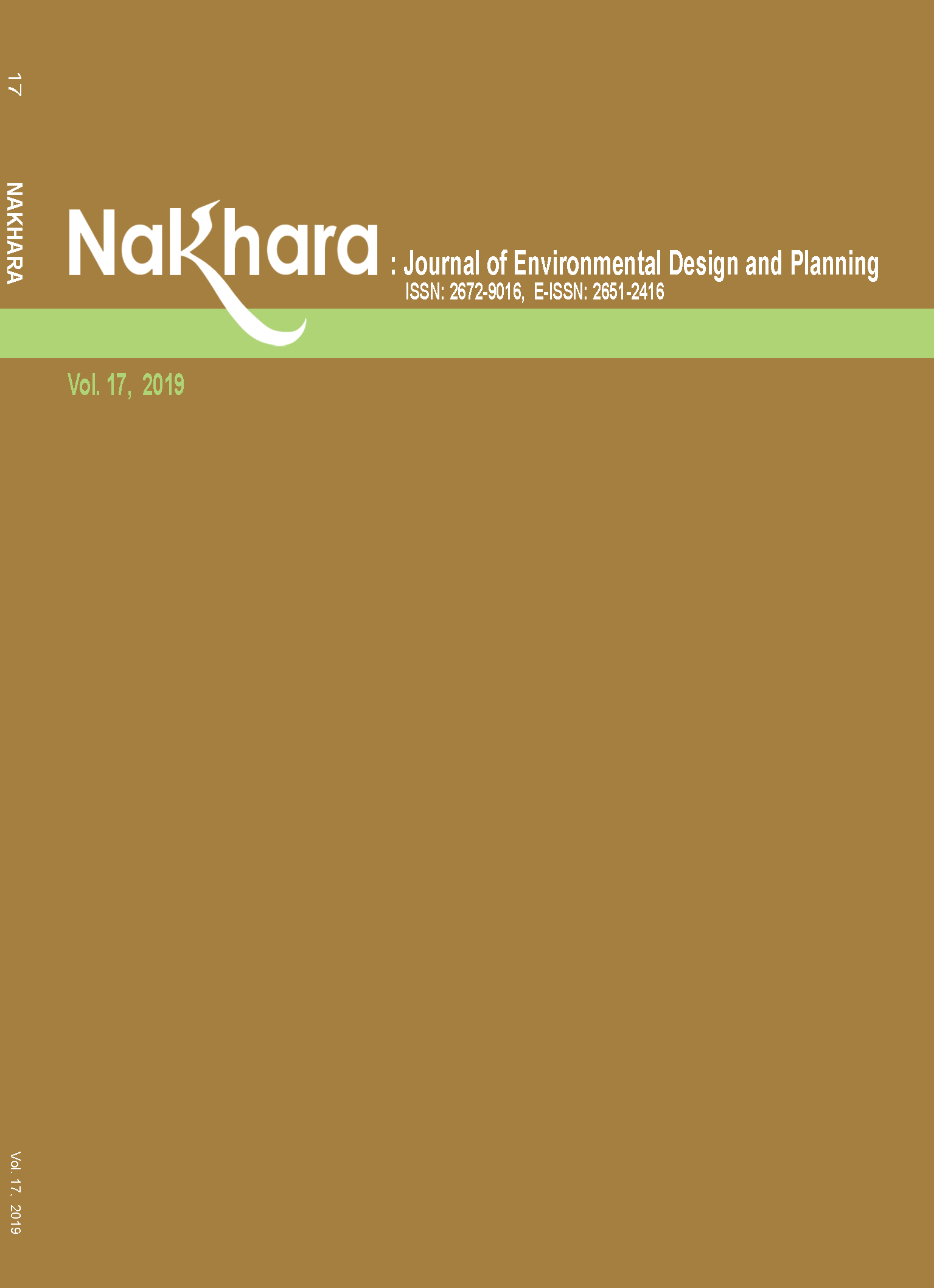Evaluating the Policy Outcomes for Urban Resiliency in Informal Settlements Since Independence in Dhaka, Bangladesh: A Review
Main Article Content
Abstract
Today’s cities are characterized by the process of urbanization, which in most cases is integrated with the escalation of informal settlements due to excessive migration followed by a housing crisis. This is a common situation for most cities in developing countries, such as Dhaka, the capital city of Bangladesh. Dhaka has emerged as one of the fastest growing megacities in recent times, which receives a major number of rural to urban migrants annually due to its growth as the major economic hub of Bangladesh. Dhaka has one of the largest populations among all global cities, which results in a critical challenge for urban areas that are experiencing very fast growing slum and squatter settlements. Considering the global concern toward urban resiliency, several policy approaches such as eviction, resettlement, and upgrading have been adopted to deal with slum (bastee) settlements of Dhaka since independence in 1972. The objective of this study is to analyse these adopted policies chronologically by reviewing the policy outcomes of other South Asian countries. The study follows a theoretical analysis from secondary resources and finally makes a summary of different policies and their outcomes.
Article Details

This work is licensed under a Creative Commons Attribution-NonCommercial-NoDerivatives 4.0 International License.
References
Bangladesh Bureau of Statistics (BBS). (2014). Census of slum areas and floating population programme 2014 statistics. Bangladesh: Bangladesh Bureau of Statistics ( BBS).
Bardhan, R. et al. (2015). Mumbai slums since independence: Evaluating the policy outcomes. Habitat International, 50, 1–11. doi: 10.1016/j.habitatint.2015.07.009.
Bhuyan. (2001). Rural urban migration and poverty: The case of reverse migration in Bangladesh. Dhaka: CIRDAP.
Centre for Urban Studies (CUS). (1988). Slums and squatter settlement in Dhaka City. Dhaka: CUS, Bangladesh.
Centre for Urban Studies (CUS). (2006). Slums of urban Bangladesh. Dhaka: CUS/MEASURE/NIPORT/USAID.
Choguill, C. L. (1987). New communities for urban squatters: Lessons from the plan that failed in Dhaka, Bangladesh. New York: Plenum Press.
Choguill, C. L. (2007). The search for policies to support sustainable housing. Habitat International, 311, 143–149.
Ghafur, S. (2011). Imprints of the changing doctrines on housing in Dhaka, 3, 17–19.
Jahan, H. (2016). Case study on a slum improvement project in Dhaka metropolitan city.
Kamaruzzaman, M. (2006). Policy paradox in housing supply for the urban poor: A case of Dhaka City. Journal of Architecture and Planning , 74 (643), 1969–1975.
Mohit, M. A. (2012). Bastee settlements of Dhaka City, Bangladesh: A review of policy approaches and challenges ahead. Procedia Social and Behavioral Sciences, 36 (June), 611–622. doi: 10.1016/j.sbspro.2012.03.067.
Rahman, M. (1999). Role of the NGOs in urban housing for the poor in Dhaka, Bangladesh, 5, 16–29.
Rahman, M. M. (2001). Bastee eviction and housing rights: a case of Dhaka, Bangladesh. Habitat International, 25, 1, 49–67.
Rahman, M. M. (2016). Sustainability of slum improvement Program in Bangladesh: An approach of capacity building, community participation and empowerment. Journal of Bangladesh Institute of Planners, 8 (December), 59–72.
Sharifi, A. (2019). Resilient urban forms: A review of literature on streets and street networks. Building and Environment, 147(September), 171–187. doi: 10.1016/j. buildenv.2018.09.040.
Tannerfeldt, G. (2006). More urban less poor. Dhaka: SIDA.
UN-HABITAT. (2003). The challenge of slums: global report on Human Settlements 2003. 1st ed. London: Routledge.
UNICEF. (1988). Slum improvement project reference manual. Dhaka: UNIC.
World Bank. (2007). Dhaka: Improving living conditions, Bangladesh development series, Dhaka, 1, 17.

